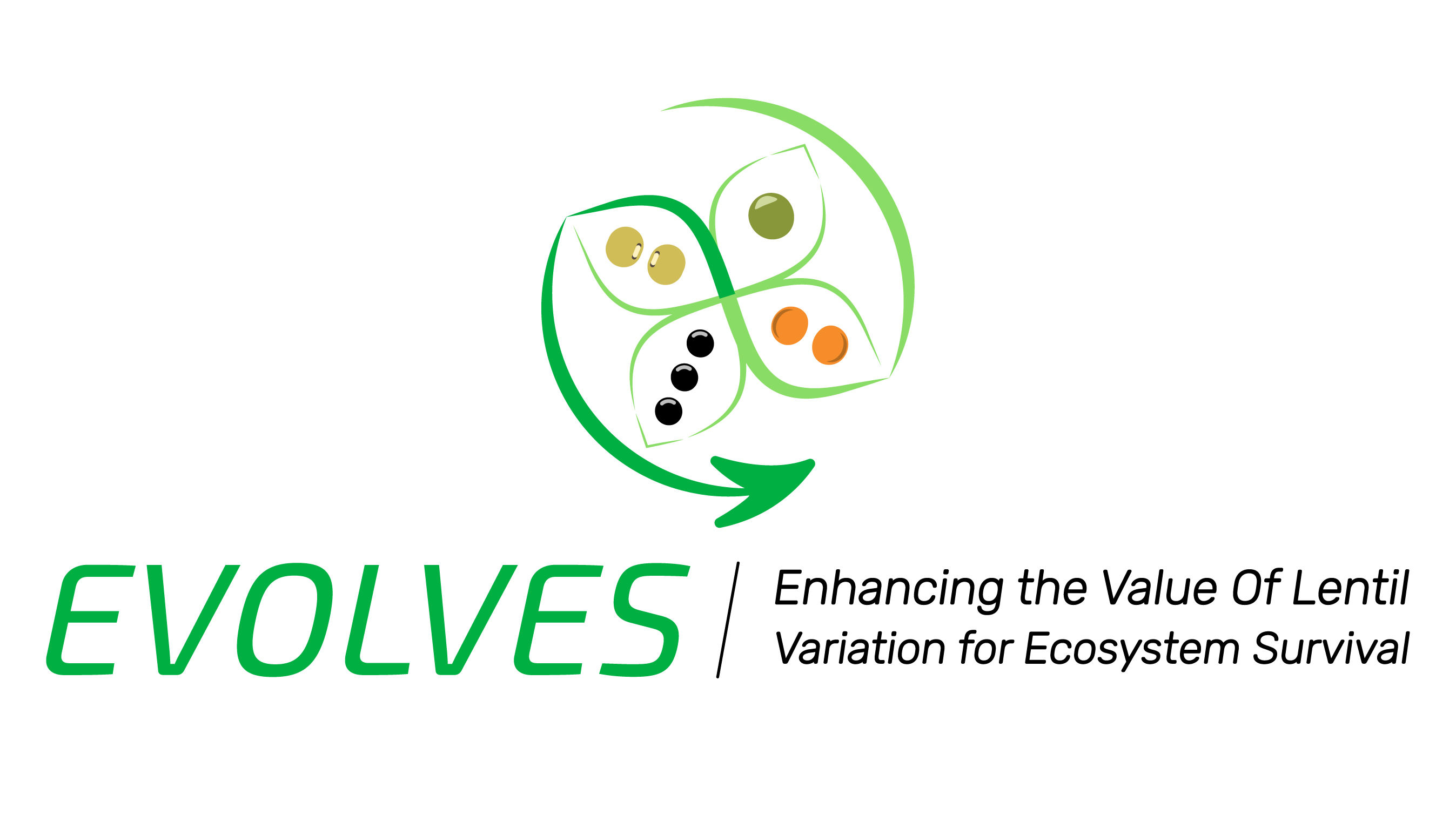EVOLVES Activity 5- Genomics in Society

GE3LS research in EVOLVES is designed to facilitate the uptake and implementation of appropriate technologies in the breeding program
The USask lentil breeding program has long-term strategic research and commercialization partnerships with both the producer groups (e.g. SPG) and private companies (e.g. BASF, AGT Foods). It has also been collaborating with several national and international research institutions for many years. The program is unique in the way that new tools and knowledge can be incorporated in the breeding practice with minimal adjustments as the genomics group (led by project lead Bett) is well integrated with the breeding group (led by co-lead Vandenberg) at the USask.
The Canadian lentil breeding program is on a cusp of an evolutionary leap at many levels. The Canada lentil industry is beginning to change its market strategy by entering the food and ingredients sector, and along with that, its expectations of future commercial varieties. At the same time, plant breeding has experienced tremendous technical progress over the past few years. In theory, the lentil breeding program sets up priority breeding targets in consultation with the end-users, and readily adopts and implements new technologies to improve its performance. The reality is, however, often not this straightforward. There has been a range of opinions of where the optimal economic value lies within the pulse industry, but going in all directions simultaneously is impossible. The breeding program has been continuously confronted with a huge amount of data, even prior to the explosion of digital data generated by genome sequencing and novel phenotyping techniques. The breeder is constantly required to make timely decisions, both for short term (e.g. selecting plants to move to the next generation) and long term (e.g. adopting new tools to improve their practice). Recent observations from several groups suggest an uneven adoption of data use and of new ‘omics technologies amongst the breeders118,119. How the lentil breeding program evaluates and decides to make use of new data and technologies that are developed by external R&D partners is not well understood.
Our proposed GE3LS research is designed to serve as a cooperation, information and communication core between EVOLVES and a range of stakeholders within the lentil industry, including the consumers. This research has two objectives: 1) to better understand the market opportunities for lentils in the future food and ingredients sector, and 2) to facilitate the uptake and implementation of appropriate technologies in the breeding program. The GE3LS research outputs will ensure the breeding efforts are well-aligned with the industry demands and the breeding program itself as the most innovative program in the world.
Knowledge of consumer perception and preference for lentil and lentil-derived food products, which will inform and enhance breeding and product development strategies.
A multi-faceted communications strategy that will facilitate adoption and implementation of ‘omics technologies by the plant breeding community. This strategy will be developed throughout the project and provide real-time inputs into other EVOLVES project activities as the ‘omics tools are being designed for use by the breeding program.
Policy recommendations for R&D stakeholders (e.g. research institutions managers and funding bodies) advising them on ways to improve technology adoption readiness and efficiency.
Explore the global and Canadian market trends for lentils, lentil- and pulse-derived products, market opportunities and challenges.
Explore processors’ and suppliers' perception of and plans to respond to the growing markets for health-oriented and plant-based food products.
We will also identify processors and suppliers’ opinions with regards to lentil/pulse attributes that would be important in future market trends.
Explore the status of gene editing in Canadian plant breeding, potential barriers to its use and consumer perceptions of this technology.
Integrate our research on technology adoption within Canadian plant breeding into policy discussions around regulating gene editing technology.
- Pixley, K.V., Falck-Zepeda, J.B., Paarlberg, R.L. et al. Genome-edited crops for improved food security of smallholder farmers. Nat Genet 54, 364–367 (2022). https://doi.org/10.1038/s41588-022-01046-7
- Rossato M, Marcolungo L, De Antoni L, Lopatriello G, Bellucci E, Cortinovis G, Frascarelli G, Nanni L, Bitocchi E, Di Vittori V, Vincenzi L, Lucchini F, Bett KE, Ramsay L, Konkin DJ, Delledonne M, Papa R. CRISPR-Cas9-based repeat depletion for high-throughput genotyping of complex plant genomes.. Genome research. 2023 May; 33(5):787-797.
Explore what is known in literature surrounding how plant breeders make decisions when faced with complex information, the particularities of technology adoption and knowledge dissemination in public institutions, and the role of market opportunities in framing technology choice.
Answer a range of questions: What would make them use, or increase the use of, databases? What would help breeders extract maximum value from complex information? How do breeders prefer to have complex and varied information organized?

